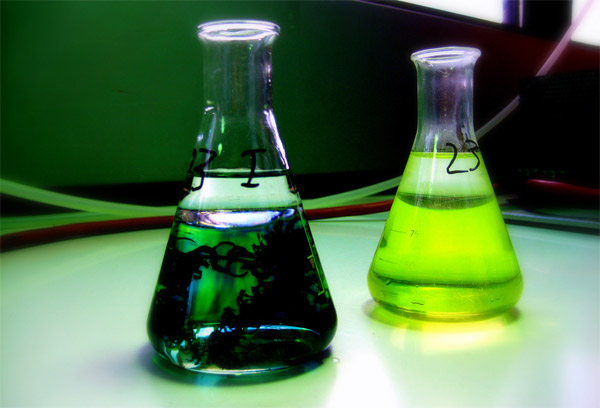

Labs are all the rage in journalism these days. There’s the Drone Journalism Lab, the Globe Lab, WaPo Labs, the New York Times R&D Lab, and more.
 Duke University’s newly launched Reporters’ Lab is not building miniature helicopters or magic kitchen tables but the more practical, less sexy tools that make public-affairs journalism cheaper, easier, and faster.
Duke University’s newly launched Reporters’ Lab is not building miniature helicopters or magic kitchen tables but the more practical, less sexy tools that make public-affairs journalism cheaper, easier, and faster.
Sarah Cohen, a professor at Duke’s Sanford School of Public Policy and Pulitzer Prize-winning investigative reporter, is director of the center, which formally goes by the title Project for the Advancement of Public Affairs Reporting.
“Lawyers get to have software that listens to depositions and does speech recognition on them, but we don’t have anything like that that works on our interview notes,” Cohen told me. “When we can’t get public records, we end up having to write elaborate programs to take data off the web.” Why can’t reporters have better tools?
The Reporters’ Lab is a vehicle for Duke’s computational journalism initiative, a phrase popularized by Cohen, Jay Hamilton, and Fred Turner in a series of papers. Computational journalism, Cohen says, refers to the use (and study) of technology to improve journalism production.
“Public records held in audio and video are like lost records.”
For example, a newspaper reporter covering a town meeting might be expected to live-tweet, file quickly, and maybe even get reax on video. That makes it tough to take good notes. Lab developer Charlie Szymanski is building a multi-function note-taking tool called Video Notebook. The software can line up tweets with video recordings of meetings to serve as navigation aids. As the reporter starts typing to transcribe, the video stops, patiently waiting for the typing to finish.
The Lab is also working with Carnegie Mellon University to bring usable speech recognition to audio recordings. Consumer software such as Dragon NaturallySpeaking is good at adapting to one voice in a quiet environment, not so good at making sense of meetings and press conferences. Cohen wants to eventually get high-quality transcription in the hands of reporters at a low cost. (This is, like, every reporter’s dream.)
“Public records held in audio and video are like lost records,” she said. “When I go into a courthouse and do reporting, I can no longer get a transcript in any reasonable amount of time — I have to just go listen to the audio and grab an MP3 of it. There are so many public meetings and public events that are only available on audio and video. I think that’s a huge problem.”
![]() Cohen’s staff at Reporters’ Lab is small, and she wants to grab on to partnerships wherever possible. Software projects are posted publicly as “developer challenges.” The public is invited to contribute ideas and code in exchange for cash prizes and even short-term fellowships at Duke. Cohen plans to host her own unconferences and hack days to drum up interest.
Cohen’s staff at Reporters’ Lab is small, and she wants to grab on to partnerships wherever possible. Software projects are posted publicly as “developer challenges.” The public is invited to contribute ideas and code in exchange for cash prizes and even short-term fellowships at Duke. Cohen plans to host her own unconferences and hack days to drum up interest.
Another project — just an idea at the moment — would mine RSS and Twitter feeds to identify trending topics on a reporter’s beat.
“There are maybe 100 to 150 different sources that you have to monitor every day to see whether there’s news you need to cover, from government agencies to small blogs to your neighborhoods, whatever,” Cohen said. “There’s no efficient way to monitor that and kind of group everything by topic, instead of by source or date.”
The ideas are simple, Cohen said, but no one else is tackling them. A recent conversation with a Google News engineer illuminates the difficult of attracting bright engineers to tackle problems of journalism. “They listened to my complaint about RSS feeds and they’re like, ‘Well, RSS feeds will eventually go away.’ Well, they’re not away yet!” she said. Engineers “tend not to be interested in solving today’s problems but future problems,” she said.
The Reporters’ Lab website, too, will be a public-facing resource. Managing editor Tyler Dukes is charged with writing about what the team is learning as well as how other journalists are using tools in unexpected ways to aid reporting. Dukes writes software reviews and posts FOIA’d documents, transcripts, and databases.
The project is not just about generating solutions but identifying who else is doing so, or at least trying. It is a collaborative effort to help journalists focus on the core product in a world of increasing demands of distractions.
“What we’re trying to do is find ways to cut time out of doing drudgery work in reporting,” Cohen said, “and get us back out into the field to do the good work.”
Photo of beakers by tk-link used under a Creative Commons license